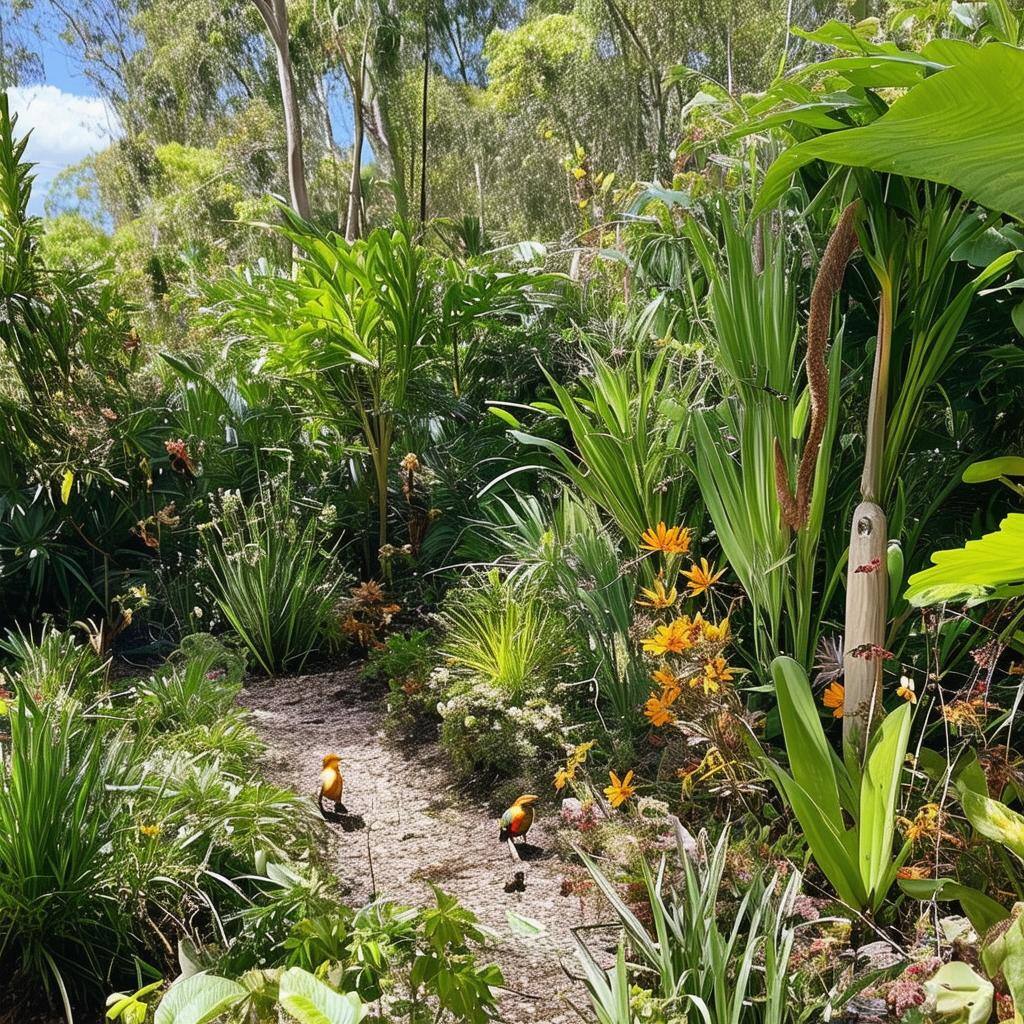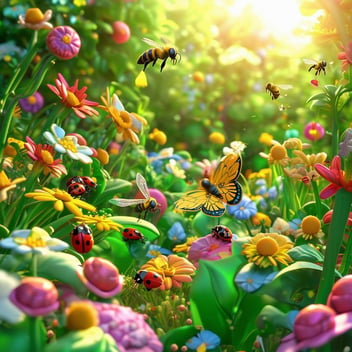Nature’s Helpers: How Native Animals Benefit SEQ Gardens
In the verdant landscapes of South East Queensland, a harmonious alliance flourishes between native fauna and cultivated gardens. This symbiotic relationship not only enhances the aesthetic appeal of these green spaces but also fortifies their ecological resilience.
Pollination Powerhouses
Among the myriad of pollinators, native bees stand as paramount contributors to the vitality of garden flora. With approximately 230 species inhabiting South East Queensland, these industrious insects facilitate the fertilization of a vast array of plants, ensuring bountiful blooms and fruitful harvests. Their gentle nature and minimal sting risk make them cherished visitors in any garden.
Natural Pest Controllers
Indigenous birds and insects serve as vigilant custodians, maintaining equilibrium by preying upon garden pests. Species such as the Australian magpie and the masked lapwing consume insects that could otherwise wreak havoc on plant life. Their predation curtails the need for chemical interventions, promoting a healthier environment.
Soil Aerators and Enrichers
The subterranean activities of native mammals and earthworms play a crucial role in sustaining soil vitality. By burrowing and foraging, they aerate the soil, facilitating root penetration and water infiltration. Their natural behaviors contribute to the decomposition of organic matter, enriching the soil with essential nutrients.
Seed Dispersal Agents
Local fauna, including birds and mammals, act as indispensable agents in the propagation of native plant species. Through their foraging habits, they transport seeds across various terrains, fostering plant diversity and aiding in the regeneration of natural habitats.
Enhancing Biodiversity
A garden teeming with native wildlife becomes a microcosm of the region's rich biodiversity. This intricate web of life not only supports the survival of various species but also fortifies the garden against environmental stressors, creating a resilient and self-sustaining ecosystem.
Creating a Wildlife-Friendly Garden
To cultivate a sanctuary for native animals, gardeners can adopt several practices:
-
Plant Indigenous Flora: Selecting plants native to South East Queensland provides familiar food and shelter for local fauna.
-
Provide Water Sources: Installing birdbaths or small ponds offers essential hydration and attracts a variety of species.
-
Avoid Chemical Pesticides: Reducing or eliminating pesticide use protects beneficial insects and the animals that depend on them.
-
Create Shelter: Incorporating elements like log piles, dense shrubs, and nesting boxes offers refuge and breeding sites for wildlife.
By embracing these practices, gardeners can transform their spaces into thriving ecosystems where native animals and plants coexist in harmonious synergy. This not only enriches the garden's beauty but also contributes to the preservation of South East Queensland's natural heritage.




